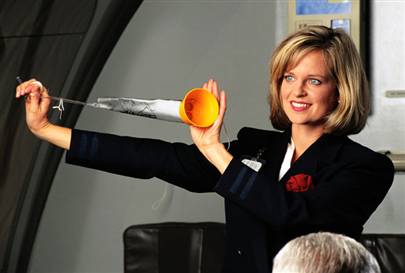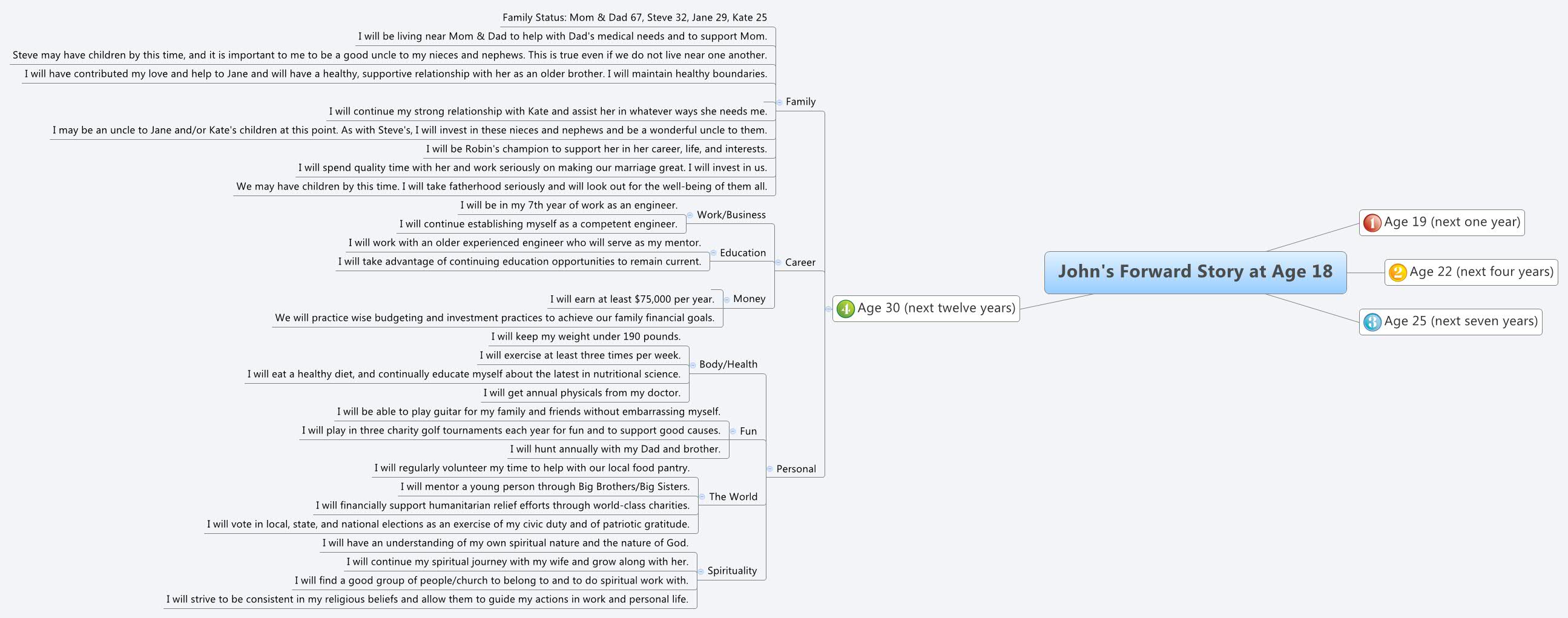http://airlineworld.files.wordpress.com/2008/01/safety_oxygen_mask.jpg
If you have ever flown, you have heard the speech:
In the unlikely event of a loss of cabin pressure, panels above your seat will open revealing oxygen masks. Reach up and pull a mask towards you. Place it over your nose and mouth, and secure with the elastic band that can be adjusted to ensure a snug fit. The plastic bag will not fully inflate, although oxygen is flowing. Secure your own mask first before helping others.
Notice that curious last sentence. Why should you secure your own mask first before helping others? Isn’t that selfish? What if your small child is seated next to you and is gasping for air? What if your elderly mother is traveling with you and needs help? Are you really supposed to look out for Number One?
Of course, most of us can explain the reason why we should secure our own mask first. Of what use will you be to your child or mother if you have lost consciousness because of a lack of oxygen? In this emergency situation we can see the importance of taking care of ourselves.
For some reason, though, when we start to think about all of our different responsibilities, many of us feel guilt about taking care of ourselves with regard to our physical, mental, and spiritual health.
Realms
I want to suggest that each of us operates in many different realms. The concept of realms was introduced in our series on mind maps. The three realms I like to work with are the realms of:
- Family
- Personal
- Career
These categories could be named differently and can be expanded in different ways, but I think these three realms can encompass everything I need to take care of in my life in order to be happy, healthy, and productive. All of these realms impact the other. For example, Personal includes my body and my health. When I make a point of eating right, getting proper exercise, and going to the doctor, am I being selfish? Let’s say that in the interest of not being selfish I do not eat right, do not do proper exercise, and do not go to the doctor. What is almost certain to happen? From experience I know that I would get sick, get fat, feel terrible, and likely shorten my life. In that condition what is my capacity to take care of my family or my career? You see, this is like putting on your oxygen mask first. As I take care of myself, I have more energy and health to take care of my responsibilities and dreams in the realms of Family and Career.
It is important that we also avoid extremes. What if I have really bought into the importance of taking care of my body and my health to the point that I exercise five hours per day, and spend half the family budget on nutritional supplements and personal trainers? No good. That is an extreme. That much time spent on body and health would likely harm my family relationships, which require time. It would also likely harm my relationship with my employer and negatively impact my career. There is delicate interplay between all three of these realms. If I go crazy in any one of them, it will likely be to the detriment of one or both of the other realms.
So, am I arguing for balance? I think the word balance is going a bit too far. If by balance we mean an equal allocation of time to all three realms, that is not what I mean. There are times when my job and career take an inordinate amount of time and focus. During those times I may feel pressure in the realms of Family and Personal. If a family member is sick and needs my attention, I may feel pressure in my Career and Personal realms. The important thing is to be conscious of all three realms and to not let one dominate the others for great periods of time. If your job and career dominates your life for a long period of time, for example, divorces often follow. If your focus on health and body dominates for long periods of time, your Career may suffer.
So, back to the oxygen mask. The fact that you put your mask on first means that you are taking care of the caregiver. That is not where you stop, though. You have taken care of yourself SO THAT you can take care of your child or mother. The reason we take care of our own health is so that we have the capacity to do all of the other things we need to do. In the next article we will expand our three realms more and discuss each sub-realm in more detail.

















